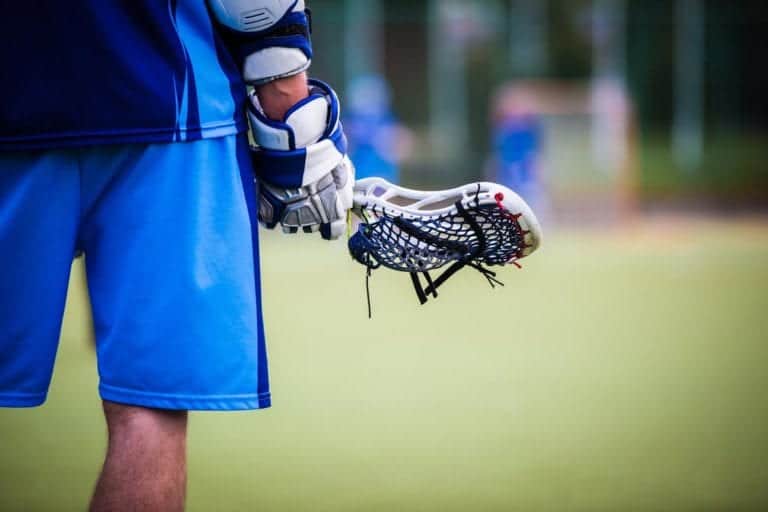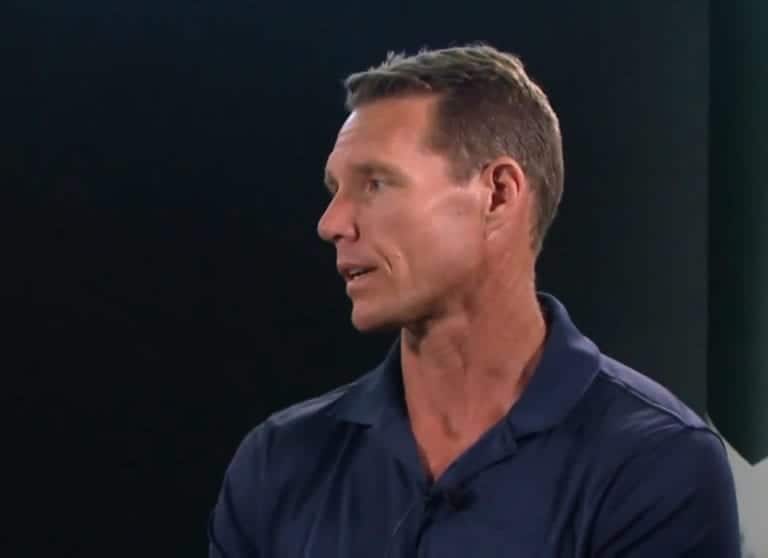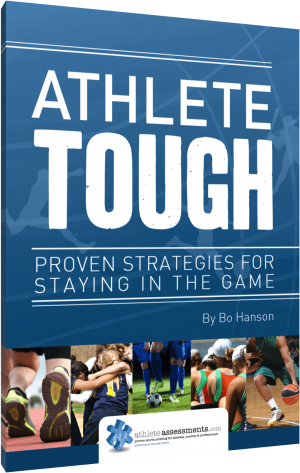Mental toughness and resilience is a key quality in athletes that are revered and successful in their chosen sport. The US Navy SEALs resilience is renowned, they are some of the most mentally tough people in the world. The Navy SEALs consistently work where regular combat units do not have the capabilities to create a successful outcome. This sees the Navy SEALs operating in places civilians cannot imagine, under circumstances which demand the highest levels of mental toughness and team work. That is what sets the Navy SEALs resilience apart.
So when I was afforded the opportunity to spend time with the Navy SEALs and listen to their take on mental toughness, it was a real privilege and one of the most significant experiences I had during my coaching years.
It was also interesting as I had competed in four Olympics and was in a room with other Olympic athletes from US Olympic Training Centre San Diego. Mental Toughness was a topic we were all very familiar with. But, when you think about toughness, and some of the most resilient people around, the Navy SEALs are definitely in that category.
They believe toughness can be taught and they had a very simple strategy. That it is not this mythical quality some people inherit and others don’t, but that it is something that can be taught and developed over time.
When developing a Navy SEAL’s resilience, they use a four step process:
1. NAVY SEALS RESILIENCE: SET A SHORT TERM GOALS.
This means setting an immediate goal, such as the next play in a basketball game or the next stroke in a rowing race. It is something to focus on in the immediate future, the very next element to execute well.
Setting short term goals keeps an athlete focused on productive actions. This stops the mind from wandering off into unproductive thoughts, which in turn impacts emotions and physiology.
When I rowed, as a crew we would have technical focus points for 20 stroke durations, after each set of this, the focus moves to the next logical part of the stroke and race plan. After a series of these focus points the race is close to over and our mind had stayed on task and most critically, has not been distracted by the pain of the event.
2. NAVY SEALS RESILIENCE: VISUALIZE YOUR SUCCESS.
Mentally tough athletes have the ability to visualize themselves in the moment successfully completing their short term goal. Numerous studies have also shown how visualization successfully enhances performance.
Visualizing a successful process and end result is a hallmark of toughness.
Every coach knows that visualization is a key skill athletes can develop which helps them to become better at performing in their sport. This vital mental skill prepares an athlete’s body to execute under pressure and to keep doing so in the heat of competition.
3. NAVY SEALS RESILIENCE: TALK POSITIVELY
Talk positively either to yourself or to those around you. Saying something positive not only encourages and inspires others, but it is a way to control your own thoughts and be disciplined to stay in a productive mindset. Talking positively to yourself is about knowing, then managing your internal dialogue.
People who are mentally tough, have a sense of positive self-efficacy. They inherently believe they are going to achieve a positive outcome and their thoughts express this.
What an athlete says to themselves when they are behind on the scoreboard has a massive impact on whether they stay behind or take action to turn it around. When the Navy SEALs train, they are constantly trying to find ways to motivate and inspire themselves and their fellow SEALs.
4. NAVY SEALS RESILIENCE: SELF-MANAGEMENT AND STRESS
There are two main points here. Firstly, they spoke about breathing and in particular how to diaphragmatically breathe. This type of breathing is where you breathe into your stomach instead of your upper chest.
It’s about being able to assess and control your breathing through taking a deep breath in and slowing releasing it and repeating several times until you feel in control again. If you cannot control your breathing, you have lost control of yourself.
The second point was about gaining a better perspective. The ability to literally or metaphorically take a step back and see the situation from a different perspective, to see the bigger picture. When we are stressed we can get so focused on what we are doing that we lose sight of the bigger picture. It’s important as tough athletes that we have the ability to reassess then re-enter the competition.
The ability to manage your emotions to ensure you are in the most productive state to compete is a skill most elite athletes develop to some degree. It also includes the ability to stay composed to make quality decisions.
The difference between an athlete and a SEAL is the context of their respective environments. SEALs live in life and death situations. Athletes will never be in the position of SEALs, yet staying composed as an athlete in our competitive environments is critical to our success. Athletes have to find a way to challenge themselves to practice these strategies on a daily basis.
One way to think about it is to compare it to developing a muscle. You would go to the gym daily, work on the muscle, and over time with the proper technique, you would achieve muscular development.
It is the same when developing mental toughness. You are training to become technically and physically prepared for when you are in the heat of the moment and the pressure is on.
You do this by practicing this process every day. This takes discipline.
What I like most about the Navy SEALs resilience is not only the fact that these people truly know about mental toughness, but also the fact that each of these four areas can be learnt. Mental skills can be taught. It takes time and effort like any other aspect of becoming excellent. In many ways, developing mental skills takes far less effort and is far less stressful than physical practice. To become excellent in this area requires acknowledgement of its value in what differentiates the best, when many other areas are almost equal.
US Navy SEAL Ethos
In times of war or uncertainty there is a special breed of warrior ready to answer our Nation’s call. A common man with uncommon desire to succeed. Forged by adversity, he stands alongside America’s finest special operations forces to serve his country, the American people, and protect their way of life.
I am that man.
My Trident is a symbol of honor and heritage. Bestowed upon me by the heroes that have gone before, it embodies the trust of those I have sworn to protect. By wearing the Trident I accept the responsibility of my chosen profession and way of life.
It is a privilege that I must earn every day.
My loyalty to Country and Team is beyond reproach. I humbly serve as a guardian to my fellow Americans always ready to defend those who are unable to defend themselves. I do not advertise the nature of my work, nor seek recognition for my actions. I voluntarily accept the inherent hazards of my profession, placing the welfare and security of others before my own.
I serve with honor on and off the battlefield. The ability to control my emotions and my actions, regardless of circumstance, sets me apart from other men. Uncompromising integrity is my standard. My character and honor are steadfast. My word is my bond.
We expect to lead and be led. In the absence of orders I will take charge, lead my teammates and accomplish the mission. I lead by example in all situations.
I will never quit.
I persevere and thrive on adversity. My Nation expects me to be physically harder and mentally stronger than my enemies. If knocked down, I will get back up, every time. I will draw on every remaining ounce of strength to protect my teammates and to accomplish our mission.
I am never out of the fight.
We demand discipline. We expect innovation. The lives of my teammates and the success of our mission depend on me – my technical skill, tactical proficiency, and attention to detail. My training is never complete.
We train for war and fight to win. I stand ready to bring the full spectrum of combat power to bear in order to achieve my mission and the goals established by my country. The execution of my duties will be swift and violent when required yet guided by the very principles that I serve to defend.
Brave men have fought and died building the proud tradition and feared reputation that I am bound to uphold. In the worst of conditions, the legacy of my teammates steadies my resolve and silently guides my every deed.
I will not fail.
Want to be ATHLETE TOUGH?
Being ATHLETE TOUGH is defined by the actions you take when your performance matters the most. This unique and proven handbook and video series program is designed to ensure your athletes never give up, never quit on their team, and never quit on themselves. It will deliver strategies on how to be mentally resilient and provide step-by-step processes to help your athletes become and stay mentally strong.
At Athlete Assessments we’re here to provide you with excellence in service and to help you be your best. If there is anything we can do to be of service, don’t hesitate to contact us.
Recommended Articles
Mental toughness is like a muscle that needs to be exercised regularly. In this article we’ll examine whether we as Coaches are providing Millennials (or any aged athlete) with enough opportunities to grow the mental skills that produce award-winning performances.
It’s now accepted that it is the mental game that ultimately wins any race or competitive game. It is what distinguishes the very top athletes from the ordinary. So, why are mental skills so important for success in sport? Find out what Bo Hanson has to say on this critical topic in the below video. In the end, having solid mental skills can be more important for elite performance than an athlete’s physiological capabilities.
In conversations I have, coaches often say to me: “So I have this athlete, and they have great physiology, they’ve got a massive VO2, and a really good motor. But they can’t concentrate, are undisciplined, doesn’t listen to me…but they could be such a success”.









